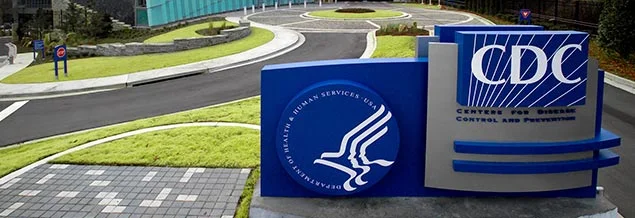The Case for Higher Minimum Wage in Illinois
This piece was written by contributor Josh Gasbarra
According to The New York Times, American productivity has increased 77 percent since 1973 but hourly pay has grown only 12 percent. If the federal minimum wage were attached to productivity, the newspaper wrote, it would be more than $20 an hour now, not $7.25. Some 41.7 million workers, a third of the workforce, earn less than $12 an hour, and most of them do not have access to employer-sponsored health insurance. A decade after the 2008 financial meltdown, the average middle-class family’s net worth is more than $40,000 below what it was in 2007. The net worth of black families is down 40 percent, and for Latino families the figure has dropped 46 percent. These appalling statistics could be partially rectified by incrementally raising the Illinois minimum wage from $8.25-$15.00/hr. Wages in America must increase to preserve America’s historic middle-class society, and raising the minimum wage is a direct and effective method for doing so.
There is a dire need to raise wages, because 40% of Americans can’t afford basic necessities, including many full-time employees. These Americans are struggling to pay for their basic needs such as groceries or housing, a problem even middle-class households confront. Despite the U.S. economy being near full employment, 39.4 percent of adults between 18 and 64 years old said they experienced at least one type of material hardship in 2017, according to a study from the Urban Institute entitled Material Hardship among Nonelderly Adults and Their Families in 2017, which surveyed more than 7,500 adults about whether they had trouble paying for housing, utilities, food or health care. These findings should shock anyone, high levels of hardship might be expected among poor Americans but the fact that so many middle-class families would also struggle to meet their basic needs is a new development. That may illustrate that a middle-class income "is no guarantee" of protection from hardship, said Michael Karpman, research associate at the Urban Institute's health Policy Center and a co-author of the report.
Despite President Donald Trump's boasting about low unemployment and strong economic growth, this research adds some needed nuance to the supposed recent increase in the GDP. Middle-class households tend to struggle with paying their health care bills rather than utilities, for instance. Health care costs have outpaced wages and inflation, pushing more Americans into high-deductible plans, which can backfire when serious health problems arise. "A lot of people are looking at the fact that wages aren't keeping up with household costs as one reason families are having difficulty making ends meet," Karpman said. "Even for families with health insurance, they may be facing high deductibles that leave them facing high costs." In Illinois, A minimum wage increase would dramatically benefit workers in their ability to pay, including the roughly 35,000 workers who earned the Illinois minimum wage of $8.25 per hour. It stands to reason that a federal minimum wage increase would boost incomes of those workers making wages near the minimum wage as well, because it would force employers to raise their wages relative to the new floor.
Aside from the moral argument to benefit workers in need, there is a practical argument for tax payers to support a minimum wage increase. A wage increase would increase State tax revenues, according to a study from the Illinois Economic Policy Institute. Illinois spends $1.1 billion each year to provide social safety net benefits to low wage workers who earn too little to support themselves. A wage increase would reduce the amount of workers dependent on welfare. Furthermore, by increasing wages workers are contributing a greater amount in income and state tax revenue.
Illinois lawmakers have already passed a bill that would have gradually raised the wage from $8.25 an hour to $15 by 2022. Gov. Rauner vetoed the bill, on the grounds that it would have reduced jobs and hurt workers more than it helped. This argument is flawed, however, because contemporary studies have shown little to no negative effects of a minimum wage increase on employment, employee hours, or the CPI. According to a U of I study on the effects of a minimum wage increase in Chicago, the higher minimum wage has achieved its intended purpose without adverse side effects. There was an increase in worker incomes but little to no impact on employment or the number of private business establishments. One reason many jobs were not lost was that most minimum wage jobs are a part of the service sector, and therefore are jobs that cannot be automated or sent overseas. In fact, according to the study the wage increase has created jobs, “Figure 19 shows the impact on the Chicago area economy from a $1 million increase in income for low income, middle-class, and the richest households in the region (Implan, 2018). Every $1 million in income earned by households making between $15,000 and $30,000 per year in the Chicago area economy saves or creates 9.4 jobs.”
America’s Middle Class is shrinking, and that is having adverse consequences on society as a whole. US household debt is over 13 trillion and growing, partially because low wage workers face escalating housing and healthcare costs. All of this while the share of the wealth in this country by the top 1% continues to grow, whereas inflation adjusted wages have fallen for middle class and low -income Americans. Governor-elect J.B. Pritzker has pledged to sign an Illinois minimum wage increase and he should do so. It is a policy that will benefit workers and tax payers. It seems only the ultra-wealthy would be hurt by a minimum wage increase in Illinois. In this time of great struggle, the wealthy can certainly take a hit.
https://www.truthdig.com/articles/american-anomie/
https://doi.org/10.17848/9780880994583
https://www.washingtontimes.com/news/2018/jun/5/social-security-now-running-deficit/
http://www.aei.org/publication/uphold-the-social-contract-raise-the-minimum-wage/








